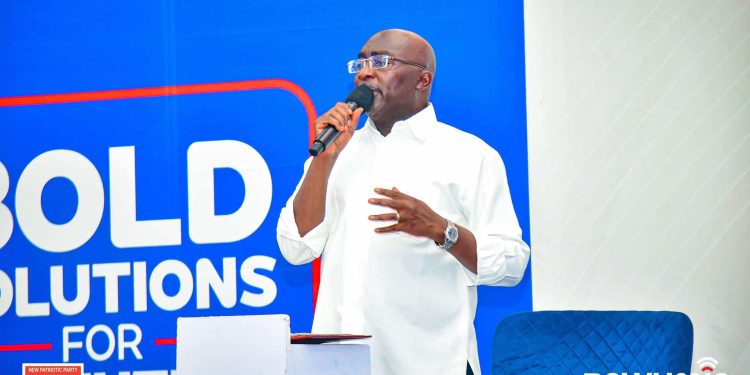adverts
Dr. Mahamudu Bawumia, the 2024 flagbearer of the New Patriotic Party (NPP), has revealed that the party’s presidential campaign faced significant communication challenges during the December 7 election, primarily due to the National Democratic Congress’s (NDC) dominance of key traditional media outlets.
Speaking to NPP communicators on Wednesday, December 18, at his residence, Dr. Bawumia expressed appreciation for the party’s efforts during the election but acknowledged that the imbalance in media coverage hindered the NPP’s communication strategy. His remarks were made for the first time since the December 7 election.
Dr. Bawumia noted that despite the NPP’s strong performance on social media, where the party outpaced the NDC by a significant margin, the NPP struggled to counterbalance the NDC’s control and influence over traditional media platforms.
adverts
He explained that while the NPP led the NDC on social media, this advantage was undermined by the NDC’s support from major media houses.
“We dominated the NDC in social media. I mean, by far, by far, very, very clearly,” Dr. Bawumia said during his address. “But we were working against their ownership of support from key media houses. Isn’t it, you know? That put us at a disadvantage in many ways in terms of the communication field because we had a lot of these key media houses who were not on our side.”
The Vice President’s comments reflect a growing concern within the NPP about the significant role traditional media plays in shaping public perception during elections.
The NDC’s control over influential media platforms, according to Dr. Bawumia, gave the party a clear edge in getting their message out to the public, leaving the NPP communicators at a distinct disadvantage in reaching voters.
Despite this communication gap, Dr. Bawumia was full of praise for the NPP communicators, who he acknowledged worked tirelessly to communicate the party’s message.
He expressed immense pride in their resilience and efforts, especially considering the media imbalance they faced.
“You fought very hard at the time you had the opportunity,” Dr. Bawumia told the communicators. “I must tell you that I’m very proud of you. Very, very, very, very proud.”
Dr. Bawumia also took the opportunity to reflect on the overall election campaign, acknowledging another key factor that contributed to the final results: the unexpected low voter turnout. While the NPP worked diligently to mobilise voters and spread their message, the relatively low participation in the election presented an additional hurdle that impacted the party’s ability to secure a victory.
His comments underscore the significant challenges faced by the NPP throughout the election, particularly in the media and voter engagement arenas. With traditional media and voter turnout both playing crucial roles in the election results, Dr. Bawumia’s reflections offer a deeper insight into the complexities of modern electoral campaigns.
As the NPP looks ahead, it remains to be seen how the party will address these issues in future campaigns, including strategies to combat media bias and increase voter participation.


